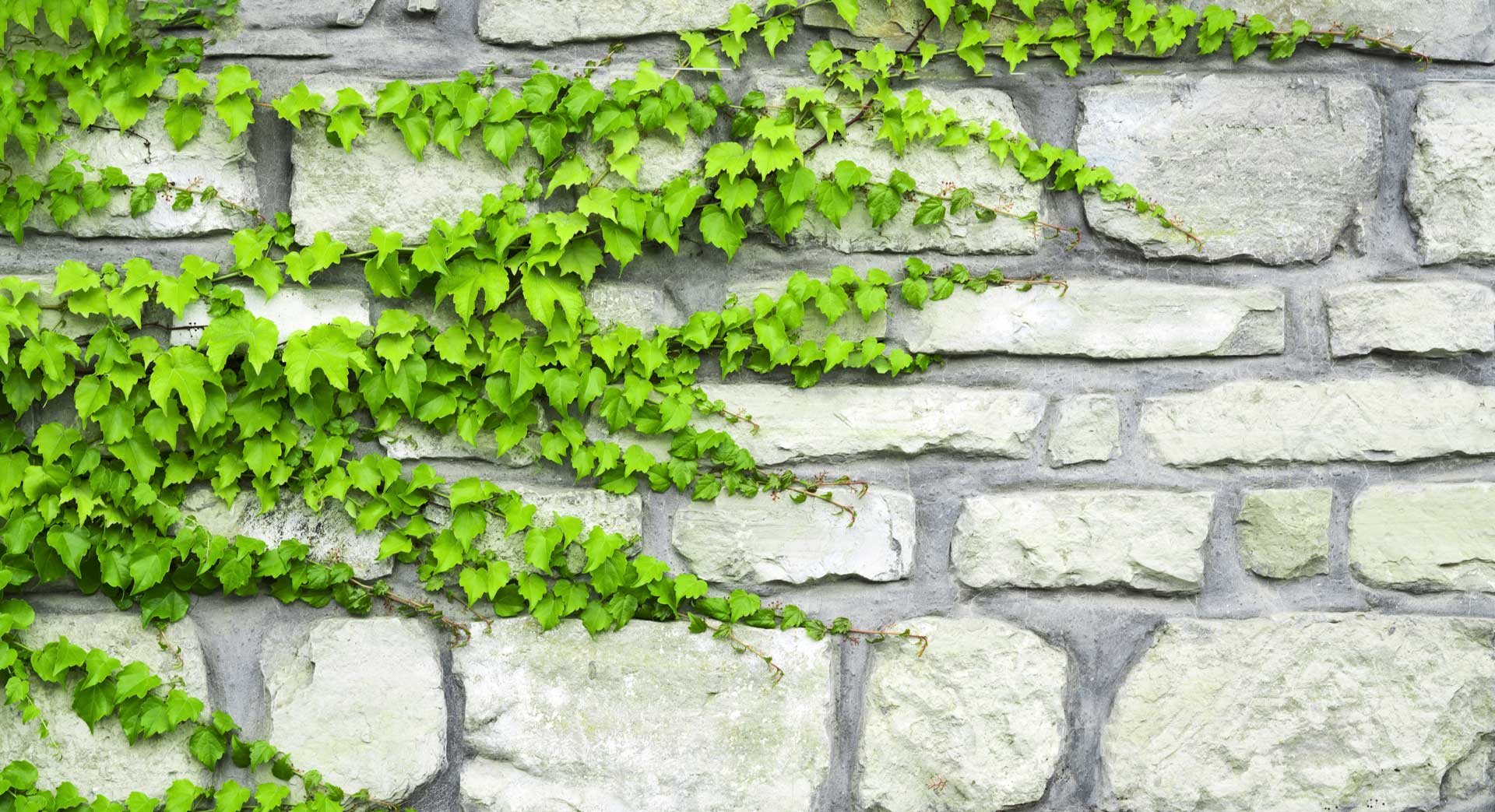Are Climbing Vines Damaging Your Masonry?
Are you charmed by the look of ivy growing on a brick exterior? Many people are, but that green growth could be causing long-term damage to your masonry. In this post, we’ll look at plants you should avoid letting grow on your masonry. We’ll also recommend plants that will beautify your stonework without damaging it.
Poison Ivy?
You might like the look of ivy creeping along with your brick masonry. The idea of ivy-covered brick walls is linked to our views of tradition and old-fashioned, picturesque settings.
Unfortunately, that ivy is almost literally poisonous to your bricks, stone and another masonry. Almost all plants create problems for your masonry. There are several reasons for this.
Chelation. All living things need air to survive. When plants of any kind live on your stonework, their respiration produces powerful acids. Over time, these acids can eat away at the minerals in brick and stone. This process is called chelation.
Attachment. Climbing plants hang onto the stone by first softening the stone structures and then attaching themselves to the softened stone. As plants grow larger, their attaching limbs also grow bigger. Combined with the acids produced by chelation, this growth can weaken the mortar and the stone.
Water. Plants also hold onto water. When these plants are living on your brickwork, they can hold unsafe amounts of it. Water that doesn’t run off can damage your masonry.
What Can You Do?
You can deal with damaging ivy or other tendrils in different ways.
Remove it. This is the best solution. Fortunately, it’s easy to destroy ivy. Cut the vines down to the roots and clear out any remaining plant matter. Let the exposed roots dry out and disintegrate. This will discourage regrowth. After you remove it, check the stonework carefully for any remaining tendrils or vines that are stuck.
Be careful when removing plants from older masonry. If it has been growing on it for a long time, you might damage a few bricks. If this happens, contact a professional mason to repoint the bricks.
Add a trellis. This is a good solution if you want to keep the plants. It might be the only option if you’re dealing with a historic building or ivy that has some historical importance. Putting up trellises will keep the damaging vines away from direct contact with your brick. It’s not ideal, but in some cases, you might not have a choice.
Vines That Won’t Hurt Your Stonework and Masonry
Removing ivy and other vines with large, heavy tendrils don’t mean you have to leave your stonework bare. Some trailing, climbing vines can beautify your masonry without damaging it. These are some of the better choices.
Clematis
It’s hard to believe that a superb climber like clematis won’t damage structures, but this popular flower is an excellent choice for your masonry. Clematis has delicate tendrils, and it needs a trellis for support. Also called anemone clematis or clematis Montana, this perennial is easy to grow and produces large, beautiful flowers in a variety of colors.
Periwinkle
Lovely, low-maintenance periwinkle will quickly spread over ground, brick, and masonry without causing any damage. Periwinkle’s tendrils are small and delicate. It doesn’t create damaging chelation. Periwinkle can cover foundations without attaching itself to stonework. It keeps dark green leaves all year and produces small gray-blue flowers in the spring. It is a perennial.
Sweet Pea
This dainty, romantic flower adds a charming touch to any wall. Sweet peas have a strong fragrance and come in many colors. They are annuals, meaning that you’ll have to replant them each year. Sweet peas prefer well-drained, alkaline soil. Sweet peas are fast, excellent climbers and need a trellis or other support.
Get Help from the Masonry Experts
If you have any concerns about caring for your brick, stone or another masonry, call the masonry experts at Capital Masonry.
We are an award-winning, third-generation masonry company founded on the principles of honesty, integrity, professionalism, punctuality, and responsiveness to our customers!
